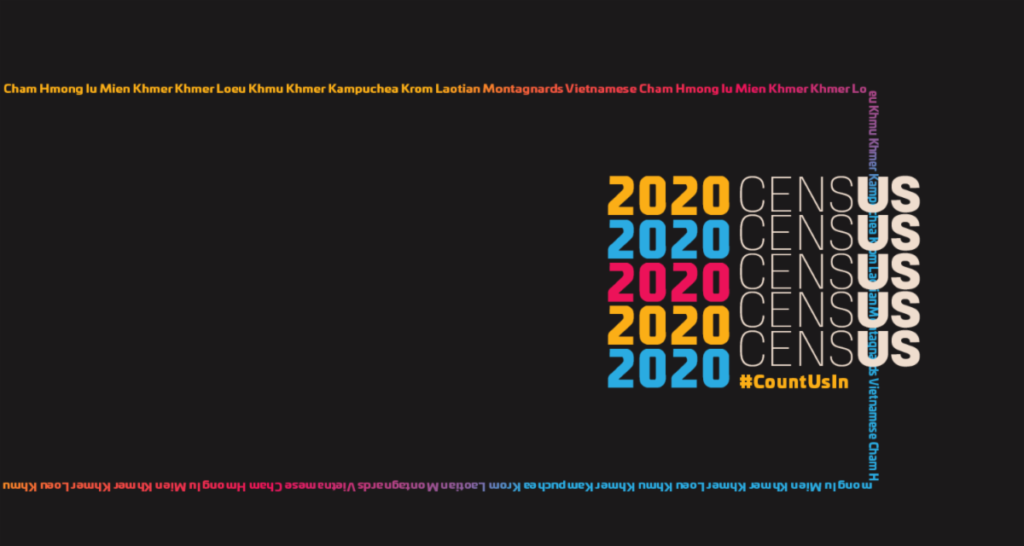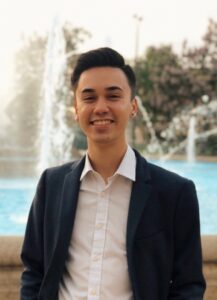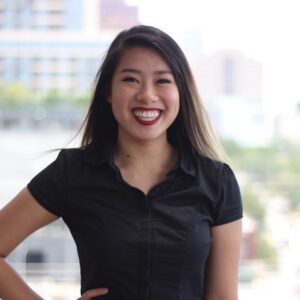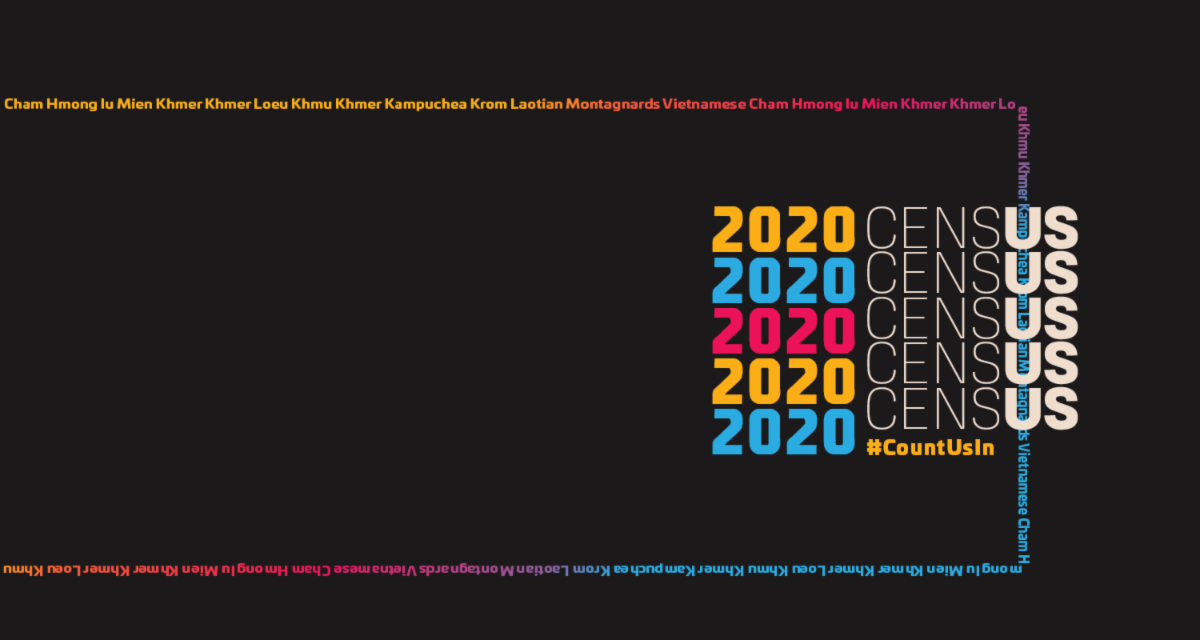This article originally appeared on the SEARAC blog.

Luke Kertcher
ESL Teacher, Aldine Independent School District
Houston, TX
 Back in March as part of #StatsinSchools week, SEARAC Census Ambassador (and former intern) Luke Kertcher, an ESL teacher based in Texas, designed a scavenger hunt and trivia activity about the census. “We were able to learn and discuss more about why the census is important, especially for our immigrant and refugee communities,” he said. “I also distributed flyers in my students’ home languages—Spanish and Vietnamese—for their families to learn more about their safety and purpose for completing the 2020 Census. Now that we’ve shifted to distance learning, I make sure to provide links and flyers in our online learning system and Remind app for families to keep up to date with Census, social services, and education information.”
Back in March as part of #StatsinSchools week, SEARAC Census Ambassador (and former intern) Luke Kertcher, an ESL teacher based in Texas, designed a scavenger hunt and trivia activity about the census. “We were able to learn and discuss more about why the census is important, especially for our immigrant and refugee communities,” he said. “I also distributed flyers in my students’ home languages—Spanish and Vietnamese—for their families to learn more about their safety and purpose for completing the 2020 Census. Now that we’ve shifted to distance learning, I make sure to provide links and flyers in our online learning system and Remind app for families to keep up to date with Census, social services, and education information.”
Despite the challenges of socially distant communication, Luke still makes a point to offer himself as a resource for census completion. “I make sure to tell my students’ families that I’m more than happy to assist them with completing their Census!” Luke said. “It’s definitely much more difficult because response rates amongst families have decreased, but it’s important to keep providing information and resources that some might be able to use.”
The work toward a fair and complete census count is important to Luke because the chronic undercount of immigrant, refugee, and undocumented communities further marginalizes them. “I think about the children in our schools who rely on public services, like free and reduced-price meals, special education services, child care, health care, and so much more,” he said. “I think about schools and districts that won’t know about the languages that their communities speak and will not be able to provide them with the services that they deserve. Without a fair count and equitable education policies, students will continue to fall even more behind.”
Luke brings his resilient refugee heritage with him to his calling in education. “I’m the son, nephew, and grandson of Vietnamese refugees who benefited from ESL education and other social programs, and I feel like we’ve come full circle now that I’m a first-generation college graduate and ESL teacher,” he said. “I know that the type of services my school district and I are able to provide relies on data from the Census, so it is so important that educators encourage their community members to complete it.”
And during these dark times, Luke’s students offer a source of light. “My students always give me hope because I know that I entered this work to support them and help them excel,” he said. “Every time I hear from a student, learn more about their experiences, or build a relationship with them, I’m filled with renewed motivation to fight for their rights.”
Lillian Trinh
Experience Coordinator
Austin, TX
 These days, Lillian Trinh’s main concern is supporting local business owners who are being impacted from necessary safety protocols. “My main concern is trying to keep business owners afloat while also being strict on social distancing,” Lillian said. “It’s probably the number one thing I’ve been concerned about—making sure everyone is being diligent about social distancing and staying home. It’s just hard because staying home also means losing income and financial disparity.”
These days, Lillian Trinh’s main concern is supporting local business owners who are being impacted from necessary safety protocols. “My main concern is trying to keep business owners afloat while also being strict on social distancing,” Lillian said. “It’s probably the number one thing I’ve been concerned about—making sure everyone is being diligent about social distancing and staying home. It’s just hard because staying home also means losing income and financial disparity.”
The Texas resident has noticed that the Asian population in the South, notably in Oklahoma, Texas, and Arkansas, is extremely misrepresented in local government. “There are hardly any resources for local community groups to form and have safe spaces throughout,” she said. “I believe that accurate representation could lead to our communities being more recognized for the work they’re doing currently, and provide more aid to supplement the work they’re currently doing without said aid right now.”
This belief has driven Lillian’s commitment to ensuring an accurate count of her community in this year’s census. Like others, her outreach due to COVID-19 has shifted mainly online. “The organizations that I am a part of have been forced to share more digital resources and rely on our members to disseminate that information to the older generation,” she said. “Other local groups that I am involved in, such as the Union of Vietnamese Student Associations of the Southern Region (UVSA South), also worked with the local Vietnamese community groups such as Vietnamese American Community of Austin Texas (VACAT) to share the Census approved/translated documents.”
The opinions expressed in this article are those of the author and do not necessarily reflect those of the Diverse Elders Coalition.

